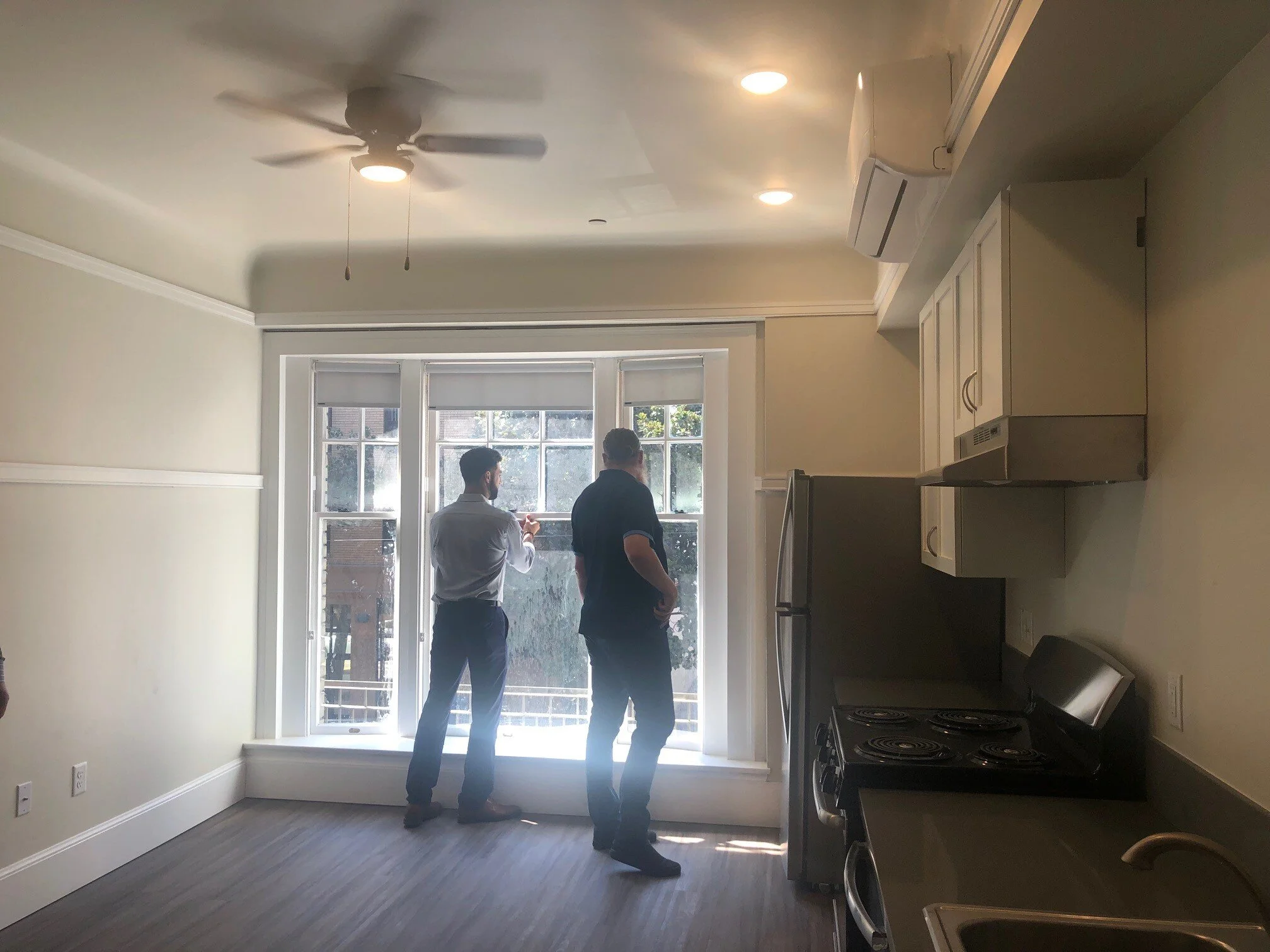Sacramento City Council votes to create $100-million fund for affordable housing
Responding to Sacramento’s severe housing shortage, members of the Sacramento City Council voted Tuesday to create a $100-million affordable housing trust fund with Measure U proceeds.
An interior at the renovated Bel-Vue affordable housing complex in downtown Sacramento
The Sacramento Affordable Housing Trust Fund proposal was crafted by Mayor Steinberg with substantial input and help from Councilmember Steve Hansen. It will be funded by new city bonds backed by future revenues from Measure U, future state allocations for affordable housing and money raised from public, private and non-profit partners. The trust fund will lend or grant money to both rental and for-purchase affordable housing projects to fill financing gaps and accelerate construction.
“The single best homelessness prevention strategy in Sacramento and in California is to build more affordable housing,” said Mayor Steinberg. “Once the city puts real skin in the game, then we also will have much more eligibility for state and federal funds, as well as additional private sector dollars.”
Keith Bloom of Mutual Housing California said the housing trust fund “creates a tremendous opportunity for affordable housing developers who are chomping at the bit to help the city to develop as much affordable housing as possible.”
Mayor Steinberg urged developers to submit proposals now to the new city website devoted to accepting applications for projects seeking funding from Measure U. That way, they can be ready to go when the bonds are issued in the coming months.
From left to right: Councilmember Steve Hansen, city Housing Policy Manager Danielle Foster, Mayor Darrell Steinberg, Councilmember Eric Guerra.
City Council members last year approved a conceptual bonding plan proposed by Councilmember Hansen during the 2019/20 budget debate. Plans call for the city to issue two rounds of housing bonds, $50 million this year and another $50 million in 2020/21 or later, once the initial funds are spent. The bonds would be repaid through the new portion of the Measure U sales tax, which brings in about $50 million annually.
Forty percent of the trust funds will be targeted to house residents classified as extremely low income, meaning that they make no more than 30 percent of the area median income, currently $25,750 or less for a family of four. Forty percent of units will be affordable to those with very low incomes, and the remaining 20 percent to people with low and moderate incomes.
The need is particularly acute in the extremely low income category. Between Oct. 31, 2013 and Dec. 31, 2018 the city issued building permits for just two units of extremely low-income housing while at the same time issuing 208 permits for units aimed at very low income tenants, 427 for low income tenants and 7,984 units for tenants with moderate or higher incomes.
The housing trust fund will provide “deep targeting of subsidies to people who are extremely vulnerable on the income scale,” Councilmember Hansen said.
He added, “We’re also trying to reshape the market so it’s less reliant on government subsidies to deliver these units.”
Bonds will not be issued until the city treasurer has conducted a stress test to ensure that the general fund can absorb the additional debt service. The first $50 million for the housing trust fund will be part of a larger, $125-million bond that will also include funds for catalyst neighborhood projects and public facilities.
Repayment for the $125 million bond would total about $7.5 million annually for 30 years.
The plan passed Tuesday will reserve 30 percent of the money in the trust fund for housing projects that require a subsidy of no more than $100,000 a unit — an attempt to spur construction of efficiency units, manufactured housing and other creative housing types that can be built for much less than the traditional cost of $400,000 and up per unit.
“If it costs us $300,000 or $400,000 a unit, we cannot create the volume of housing to meet the human need that’s out there,” Mayor Steinberg said.
Councilmember Eric Guerra said he would like to see companies that produce modular housing that can be stacked into multi-level apartment buildings come to Sacramento to build. “We’d love to manufacture more housing,” he said.
Between 2012 and 2017, the median sale price for a home in the Sacramento region rose 59 percent, and rents increased 33 percent. More than half of renters in Sacramento are spending more than 30 percent of their income on housing.





